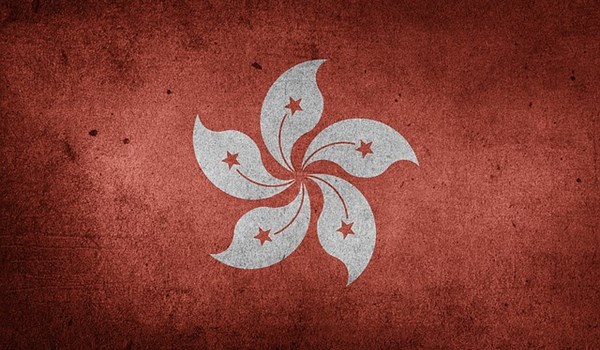
CHINA: ‘Yin and yang’ contracts identified as tax evasion
China’s top judicial authorities have identified so-called “yin and yang” contracts as a type of tax evasion in a newly released legal document. The designation has been highlighted
It is the issue that has set the Norwegian general election alight: whether to keep, cut or abolish the national wealth tax. As the country prepares to go to the polls on Monday, Norway is in the grip of a ferocious national argument that is likely to rumble on whichever party wins.
In an economy less then a seventh the size of Britain’s, the formuesskatt raises about 32bn kroner (£2.4bn). Multiply that by the difference in GDP, and the same rules applied in the UK could raise more than £17bn – serious money in tax terms. Defenders say the wealth tax has another benefit. They see it as the cornerstone of a progressive tax system that has helped to create one of Europe’s most equal societies.
But entrepreneurs are pushing back, financing lobbying campaigns and pouring money into politics and online advertising. There is even a protest song. “Don’t come to Norway, we will tax you till you’re poor, and when you have nothing left, we will tax you a little more,” laments a business consultant in a video posted on LinkedIn. On the other side of the divide, the leader of the Socialist Left party has a “wall of shame” in her office displaying the names of those who oppose or avoid the tax.
More disturbingly, the experts are under attack. Economists and statisticians have flagged a wave of disinformation, while being subjected to hate mail and targeted by newspapers.
Annette Alstadsæter, director of the Skatterforsk Centre for Tax Research at the Norwegian University of Life Sciences, has spoken in favour of the tax and authored a series of papers on avoidance and offshore wealth. She now weighs her public statements carefully, and has withdrawn from social media because of the risk of online abuse. “People are so angry. Either you are very against or very for,” she says.
“I’ve been working on this for 15 years and it’s always an issue but this time it has exploded,” says the economist Mathilde Fasting, a member of the right of centre thinktank Civita and one of those calling for abolition. “Each time you talk about economic issues this tax will come up. It’s like a symbol of all other things happening.”
In a country where politics still gravitates to the centre, the wealth tax creates a clear dividing line between left and right. The row has evolved into a full culture war, with Trumpian appeals to aspirational young men who may not yet be rich enough to pay the levy, but oppose it on principle. On the YouTube show Gutta (Guys), four muscle-bound presenters filmed themselves pouring champagne over their wrist watches while discussing “tax refugees”.
Jens Stoltenberg, the former Nato secretary general and ex-Norwegian premier who returned to frontline politics in February as finance minister, has promised to set up a cross-party commission to review all taxes if Labour is returned to power. Thanks to his wide appeal, his party has risen in the polls, and is now ahead of the populist Progress party, which has promised to do away with the formuesskatt. In third place is the more moderate centre-right Høyre, which wants to slash the amount raised.
During his decade at the helm of Nato, Stoltenberg was dubbed “the Trump whisperer” after convincing the US president not to pull out of the security alliance during his first term. It seems settling the wealth tax dispute will take all of the diplomatic skills he deployed in that role. The trick will be to retain the tax without triggering an exodus of billionaires.
“If a ton of people leave Norway that would be a problem,” says the entrepreneur Karl Munthe-Kaas, who supports the tax. “But if we let these groups that have all this money hold the rest of the country hostage, I have an issue with that.”
Cut through the noise, and the underlying conversation is nuanced. Norwegians discuss tax with confidence, because they have access to all the right data. Almost uniquely among democratic nations, the tax returns of named individuals are public, in a database that all citizens can access. Likewise, information on companies is detailed and reliable.
Norway has levied a tax on wealth above a certain value since 1892, some years before securing full independence from Sweden. Along with Spain and Switzerland, it is one of only three European nations to still tax capital in this way. The current rate stands at 1% for those with assets of more than 1.7m kroner (£125,000) and 1.1% for those with more than 20.7m kroner. The tax is collected annually, and is calculated by adding up the value of properties, savings, investments and shares, and deducting any debt. Private companies count as part of their owners’ wealth. There are discounts – for example, only 25% of the value of a primary residence is taxable.
Although 720,000 citizens pay wealth tax, for most the annual contribution is small. Fasting says about 3,000 have taxable wealth of more than 100m kroner.
Among the biggest contributors is Gustav Magnar Witzøe, the heir to the SalMar fish farms business. In 2023, his wealth tax was 330m kroner. It was the only personal tax he paid as he had no income, according to reports based on his filings. Under the plans put forward by Høyre, it has been reported his bill would fall to zero. This is because the party is proposing to exclude what it calls “working capital” – essentially assets that are part of trading businesses.
Thanks to changes made by Labour the total wealth tax collected has risen from 18bn kroner in 2021, the year of the last election, to 32bn kroner last year. Estimates for 2025 are even higher.
In 2022, the changes prompted departures. More than 30 billionaires and multimillionaires left the country, according to research by the newspaper Dagens Næringsliv. They included the industrial tycoon Kjell Inge Røkke, the fourth richest Norwegian, with a fortune of about £1.5bn, who relocated to Switzerland. There were warnings of lost tax revenues and damage to the economy, but three years later, it is clear that the exodus had limited impact.
In Norway, as elsewhere, the billionaires are getting richer. In 2024, the 400 wealthiest were worth 2.139tn kroner, up 14% in a year, according to the business magazine Kapital. But it also reported half of this wealth was controlled by families relocated abroad.
Fasting believes more will leave. “People are not investing here, not listing their companies, and finally moving out, which is serious. And I am sure that if the Labour party continues after the elections now you will see a boost of people moving,” she says.
Her main argument for scrapping the tax is that it puts Norwegians at a disadvantage compared with foreign company owners. She says they have to take dividends out of their companies to pay the tax authorities, which means less money for growing businesses or starting new ones.
One of the loudest lobby groups is Aksjon for Norsk Eierskap – Action for Norwegian Ownership. Its backers include the salmon exporter Roger Hofseth. “If the left wins this time, a lot of people will flee to Switzerland,” Hofseth told a gathering last month.
“There is this mentality that people who are self-made, they forget they are a product of the system,” says Alstadsæter at the Centre for Tax Research. “For me it’s about justice. Everyone should pay a little bit. The rich get all these public goods. A stable political system, social security, and a highly educated population with access to free healthcare.”
She believes some reforms are needed, saying the threshold of 1.7m kroner is too low.
With a sovereign wealth fund that collects the profits from Norway’s abundant stocks of oil and gas able to contribute 25% of public spending each year, there is arguably no need for the formuesskatt.
“To me, it’s more about fairness,” says Simen Markussen, the director of the Ragnar Frisch Centre for Economic Research in Oslo. “It ensures that capital owners who don’t have labour income are paying a reasonable amount of tax. It redistributes from the richest to everyone.”
For the very rich, it is particularly effective, as it accounts for most of the personal taxes they pay.
While the sums collected are not huge, they are meaningful. “Compared with all taxes on personal income it’s maybe 4.5%,” says Markussen. “It’s big enough that if a politician says ‘I want to abolish it’ they should be challenged on how this should be financed. Do you want to maintain those tax revenues, or what do you want to cut?”
Munthe-Kaas founded the Oda grocery delivery business, which became Norway’s first “unicorn”, a term used for startups valued at more than $1bn. He exited the company last year and no longer pays the wealth tax, but has done previously. He believes it works well, and would prefer a cut to corporation tax.
“The wealth tax is not a choice between value creation versus distribution, it gives us both,” he says. “Any tax you bring in will reduce the ability to either invest or consume, whoever pays it. Taxing the rich isn’t different in that sense to taxing a middle-class worker. So when rich people are upset they get less to invest, the same argument goes for anyone.”
André Nilsen, a neuroscientist and kroner millionaire thanks to family money and his own investments, pays a small sum in wealth tax each year. He believes the formuesskatt should stay because it helps pay for social security. “It is easier to get rich in Norway compared with other countries. You are free to go on wild explorations of ideas because you have a safety net that will catch you if it doesn’t work out,” he says.
Although the wealthy often give generously to charity, it cannot replace tax, he believes. “There must be some kind of system above everyone that says at least do this.”
There are other ways to target wealth. The UK – in common with many other countries – taxes dividends, capital gains and inherited money. But the rates can be much lower than those for wage-based income, and there are many loopholes and discounts.
Alstadsæter says the wealth tax is harder to dodge: “It’s the only tax that cannot be avoided through restructuring while living in Norway, hence the opposition.”
This article was amended on 10 September 2025 to amend the footnote on the graph showing wealth tax. An earlier version said that it showed the “party listed is the governing party or leading party in governing coalition” whereas it showed the governing party or largest party in the governing coalition.

China’s top judicial authorities have identified so-called “yin and yang” contracts as a type of tax evasion in a newly released legal document. The designation has been highlighted

Several European airlines are already considering charging passengers an ‘environmental cost surcharge’ as they face up to climate change goals, but frequent flyers could feel the sharpest sting

The 2024 United Nations Climate Change Conference (COP29) left a bitter taste in the mouths of developing country negotiators. Many felt betrayed by what Indian negotiator Chandni Raina called an ‘optical

Hong Kong’s government outlined its first guidelines on the “responsible” use of artificial intelligence (AI) and embraced blockchain, as regulators strive to get ahead of the technological revolution